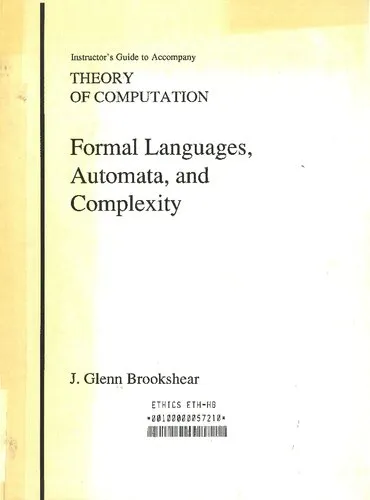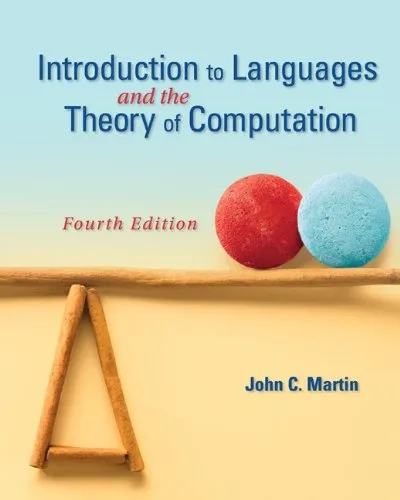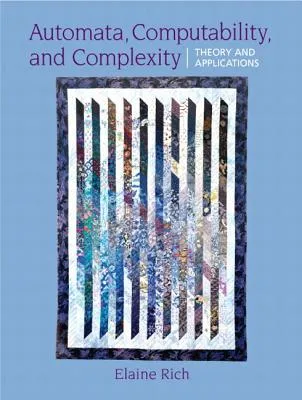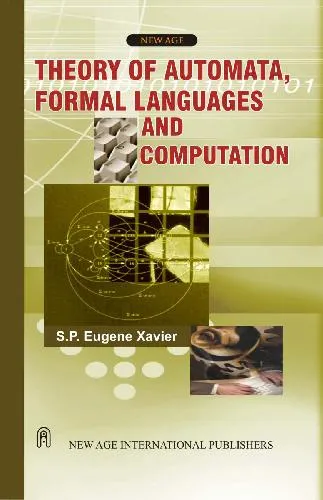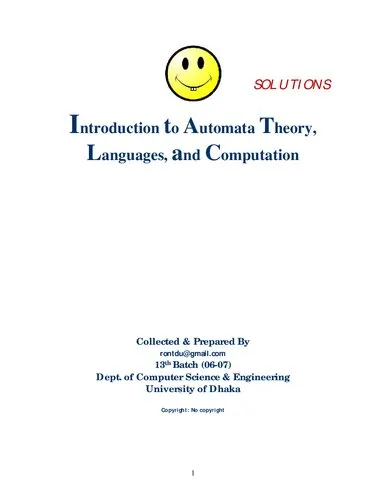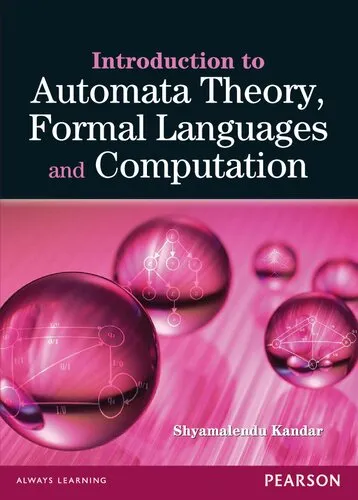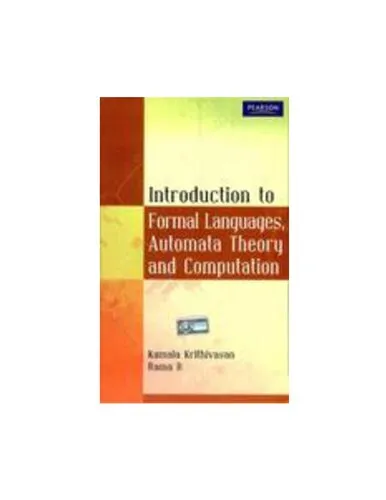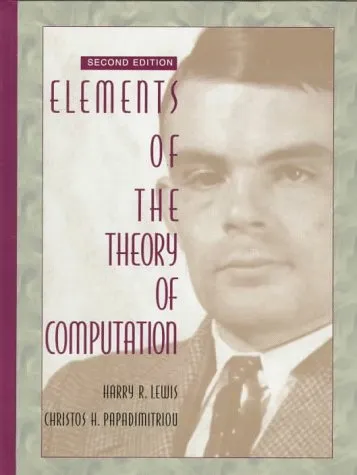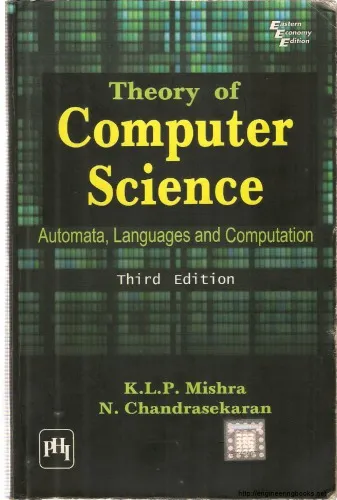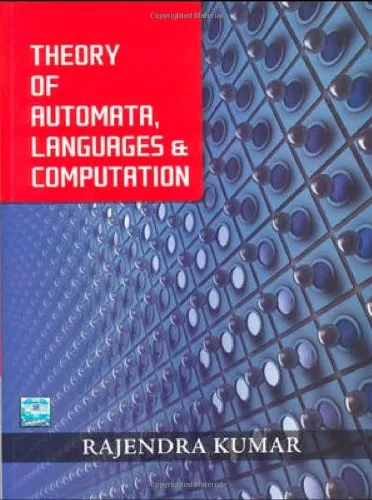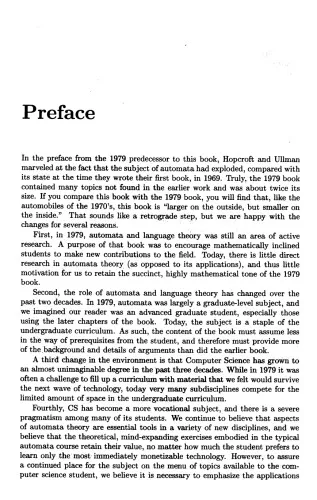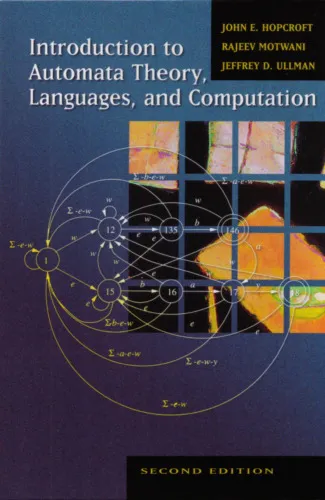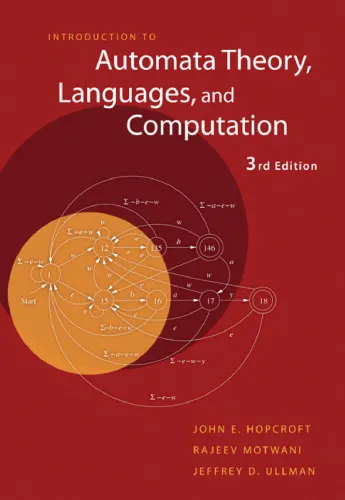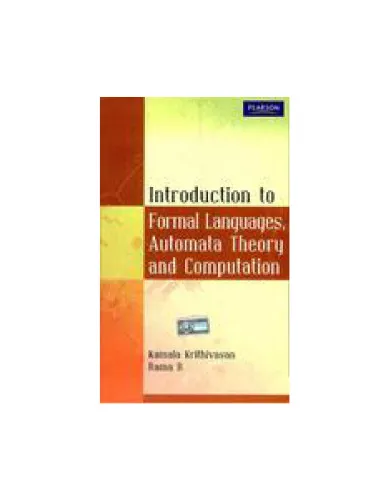Instructor's Guide to Accompany THEORY OF COMPUTATION Formal Languages, Automata, and Complexity
4.3
Reviews from our users

You Can Ask your questions from this book's AI after Login
Each download or ask from book AI costs 2 points. To earn more free points, please visit the Points Guide Page and complete some valuable actions.Related Refrences:
Introduction
Welcome to the comprehensive guide that accompanies the Theory of Computation: Formal Languages, Automata, and Complexity. This instructor's guide is designed to complement the main textbook, providing educators with valuable resources, insights, and a structured approach to teaching the fascinating world of theoretical computer science.
Detailed Summary of the Book
The Instructor's Guide to Accompany THEORY OF COMPUTATION: Formal Languages, Automata, and Complexity serves as an essential companion for educators delving into the profound but intricate universe of computation theory. It systematically outlines the core concepts of formal languages, automata theories, computational processes, and complexity theory. The guide emphasizes pedagogy, offering practical teaching strategies and comprehensive breakdowns of complex topics, making it easier for instructors to convey these subjects effectively.
This guide is structured to parallel the chapters in the primary textbook, ensuring seamless integration into coursework. It includes chapter objectives, detailed explanations, and solutions to exercises, which are fundamental in assessing students' understanding and guiding them through problem-solving techniques. Each chapter is meticulously crafted to maintain academic rigor while being accessible, fostering a deeper grasp of topics such as finite automata, regular expressions, context-free grammars, Turing machines, and complexity classes.
Key Takeaways
- Enhanced Understanding: Instructors will find structured approaches to breaking down complex theoretical concepts, allowing for clearer and more effective teaching methodologies.
- Comprehensive Exercises: The guide provides detailed solutions and explanations for exercises, which are invaluable for both instruction and student evaluation.
- Teaching Strategies: Leverage pedagogical techniques tailored for courses on computation theory, catering to various learning styles and educational environments.
- Integration with Textbook: Seamlessly integrate with the main textbook, ensuring continuity and cohesion in course material delivery.
Famous Quotes from the Book
"The elegance of formal languages and automata theory lies in their ability to describe complex computational phenomena through simple, abstract models."
"Understanding the limits of computation is as critical as engineering the possible; it defines the boundaries within which innovation can thrive."
"The study of computational complexity not only paves the way for more efficient algorithms but also challenges us to ponder the very nature of problem-solving."
Why This Book Matters
This instructor's guide is crucial in bridging the gap between abstract computational theories and practical teaching applications. As computation theory forms the foundational basis of computer science, a solid grasp of these concepts is indispensable for educators and students alike. The guide ensures that instructors are well-prepared to deliver content that not only educates but also inspires curiosity and profound understanding.
By equipping educators with the right tools and methodologies, this guide empowers them to foster a classroom environment where students can explore the depths of computation theory. It supports educators in cultivating the next generation of computer scientists who will navigate and shape our increasingly digital world. The ability to teach challenging subjects with clarity and engagement can significantly influence students’ conceptual mastery and enthusiasm for the subject.
Free Direct Download
You Can Download this book after Login
Accessing books through legal platforms and public libraries not only supports the rights of authors and publishers but also contributes to the sustainability of reading culture. Before downloading, please take a moment to consider these options.
Find this book on other platforms:
WorldCat helps you find books in libraries worldwide.
See ratings, reviews, and discussions on Goodreads.
Find and buy rare or used books on AbeBooks.
1514
بازدید4.3
امتیاز0
نظر98%
رضایتReviews:
4.3
Based on 0 users review
Questions & Answers
Ask questions about this book or help others by answering
No questions yet. Be the first to ask!
